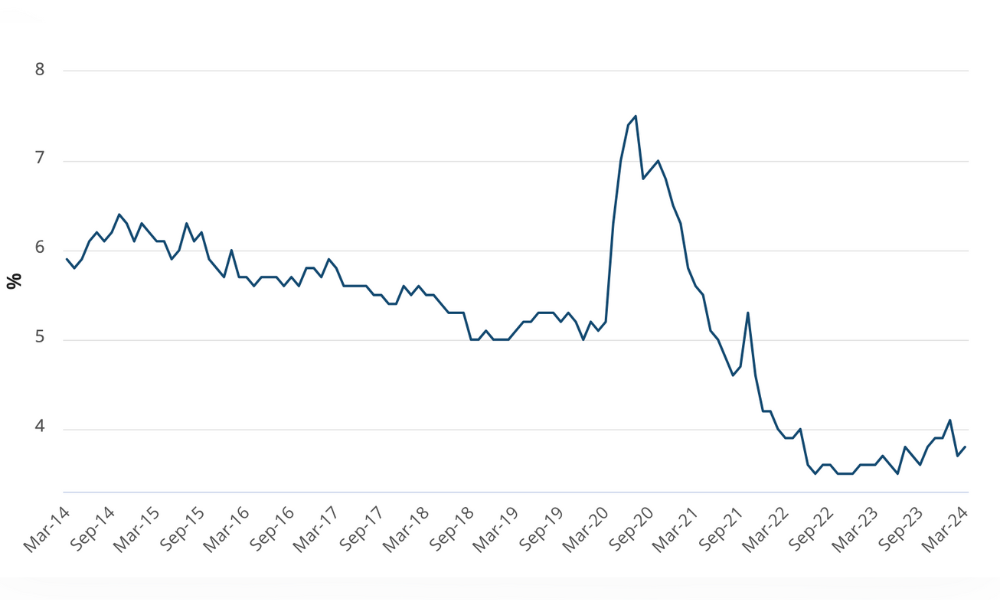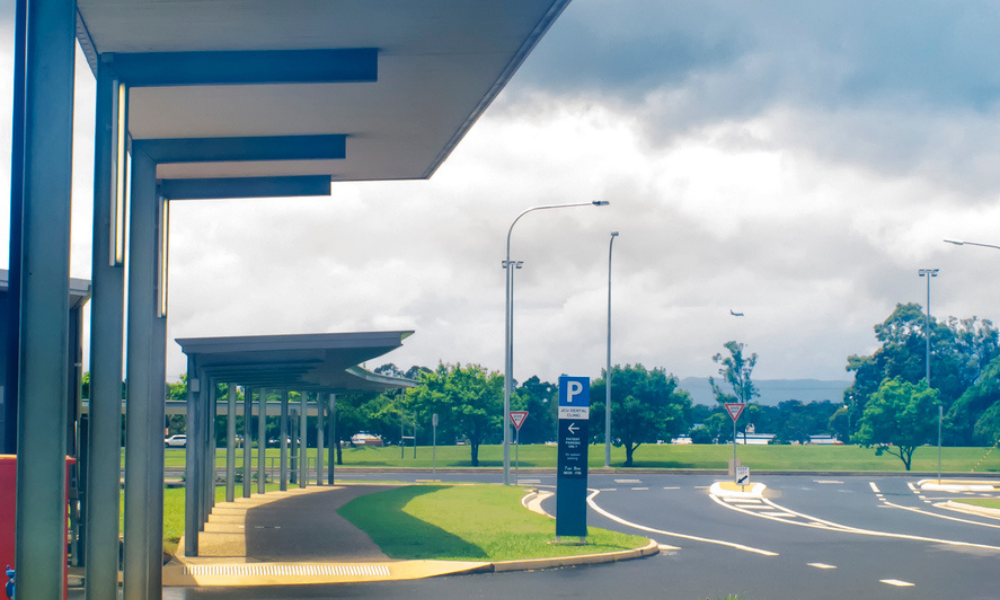Since 1 July 2013, 457 visas got harder. Ariel Brott outlines how the procedure has changed and what HR professionals need to do about it.
Since 1 July 2013, 457 visas got harder. Ariel Brott outlines how the procedure has changed and what HR professionals need to do about it.
If the subclass 457 visa were a Hollywood star, you might say that it has had some “work” done. In my last article, I foreshadowed some of the proposed changes to this visa subclass, particularly in relation to labour market testing. On 1 July 2013, our Parliamentary surgeons took up their knives and those changes became law, along with a number of other significant nips, tucks, augmentations and reductions.
In short: 457 visas just got harder. Below, I have outlined how the procedure has changed and what HR professionals need to do about it.
Fees, Costs and…More Fees
The Department of Immigration and Citizenship is not shy of fee increases, and this financial year sees multiple such increases. First, 457 nomination fees are increasing from $85 to $330.
Second, the basic visa application fee is increasing from $455 to $900. To add to the sting, if the applicant is already in Australia on another temporary visa, there will in most cases (other than certain temporary visas) be a further $700 Subsequent Temporary Entry application charge payable.
Finally, if your candidate will be accompanied by family, then there will be a further $900 charge for each secondary applicant (such as a spouse or child) over the age of 18, and $225 for each secondary applicant under the age of 18.
When you crunch the numbers, it becomes clear that for an average family moving from another temporary visa, the cost of nomination and visa application fees has increased not less than a staggering five-fold.
Who Pays the Fees?
It should also be noted that , whereas in the past sponsors were forbidden only from recovering costs from sponsored persons, now sponsors must take sole responsibility for costs associated with recruitment and their application for sponsorship.
English
Previously, most 457 visa applicants other than those in trade and technician occupations, were exempt from English language testing. The occupation-based exemption has now been removed. This means any potential 457 visa applicant who might previously have relied on this exemption, should now consider preparing for an International English Language Testing System (IELTS) test, with a view to attaining scores of at least 5 in all four test components. As it might typically take several weeks from the time of booking a test to actually getting the results, this should be factored into the recruitment process.
Other exemptions to the English requirement still apply, including for:
- those holding passports from Canada, the USA, the UK, the Republic of Ireland and New Zealand;
- those who have completed at least 5 years of consecutive full-time secondary and/or tertiary education in English; and
- applicants who are to be paid a salary above the English Language Salary Exemption Threshold, which has been increased to $96,400.
Eligible Occupations
The Consolidated Sponsored Occupations List (CSOL) of eligible occupations has been amended. Anatomists or Physiologists will no longer be eligible to apply for 457 visas. However, the following occupations have been added to the CSOL:
- Procurement Manager
- Nutritionist
- Intellectual Property Lawyer
- Archaeologist
- Hydrographer
- Kennel Hand
Genuine Position
Immigration will now assess “genuineness” at the nomination stage. This suggests that refusal on grounds of genuineness may now go on an employer’s record, with potentially negative implications for future applications. Accordingly, it is now doubly important to ensure appropriate documentation is attached to a nomination application and presented in such a way as to avoid any possibility of refusal on grounds that the position is not genuine (for example, if the position does not appear to be aligned with the scale or nature of the business) or that the role is at a lower skill level than claimed. Ideally this will include clear, persuasive submissions that address both the legislative and policy criteria that will guide a case officer’s decision.
Limited Number of Nominees
Businesses may no longer sponsor unlimited numbers of workers under a 457 sponsorship. Sponsorship applications will now have to justify a specific number of workers the business wishes to sponsor for the life of its sponsorship agreement. Sponsors may apply for a variation of this number at a later stage.
Market Salary
457 visa holders must still be paid a market salary. Previously a sponsor could rely on an equivalent Australian employee as a benchmark for the market rate. Now a sponsor must also establish that the terms and conditions of employment are appropriate, not just for that particular workplace, but for that industry and geographic region.
High income earners may avoid this exercise, but the Market Salary Exemption Threshold has increased from $180,000 to $250,000.
Income Threshhold
The Temporary Skilled Migration Income Threshold has been indexed from $51,400 to $53,900. This means a 457 visa holder must not only be paid a market rate, but that the market rate cannot be less than $53,900.
If you have a pending nomination application below this new threshold it is imperative that you update the application before a decision is made.
Skills
Subclass 457 visa applicants must still meet the requisite skills, qualifications and/or experience for their respective nominated position. However, where evidence for this is unclear, the Department of Immigration and Citizenship may now refuse a visa application without any request for additional information. Accordingly, applicants should ensure all appropriate documentation is lodged upon application.
Furthermore, due to allegations that unskilled workers are being sponsored under generalist occupations, policy now requires 457 applicants nominated as Program and Project Administrators as well as Specialist Managers Not Elsewhere Classified, to undertake formal skills assessments.
Labour Market Testing
As foreshadowed in my last article, the proposed labour market testing laws - with a few last minute tweaks - will be implemented in November 2013.
In order to nominate foreign workers, employers will be required to provide evidence of having advertised the be required to provide evidence of having advertised the position at some stage in the 4 months prior to the application as well as evidence of any fees or expenses associated with that advertising. Other evidence may be provided in addition, such as labour market research.
Furthermore, information about any redundancies or retrenchments made in the 4 months prior to the application must also be disclosed. If any redundancies or retrenchments have been made, these must have occurred before the position was advertised.
It appears that, other than engineers and nurses, the majority of ANZSCO Skill Level 1 occupations (which require a minimum of a relevant bachelor degree and/or 5 years of relevant experience) will be exempt from labour market testing; some ANZSCO Level 2 occupations occupations (which require a minimum of a relevant diploma covered by the AQF and/or 3 years of relevant experience) will also be exempt; and the majority of trade and technician occupations will be subject to this new requirement.
Exemptions from labour market testing will also apply in the case of major disasters.
Employers intending to nominate foreign workers should become familiar with the requirements of labour market testing.
Other changes
- Businesses wishing to become 457 sponsors must now attest to having a strong record of, or a demonstrated commitment to, employing local labour and declare that they will not discriminate in their recruitment practices.
- Meeting the training benchmarks is now an ongoing and enforceable requirement rather than just a commitment. This means 457 sponsors must spend the equivalent of 1% of payroll every year on training Australian employees, or otherwise donating the equivalent of 2% of payroll to an industry training fund.
- New policy is being applied such that the term of sponsorship approval for start-up businesses will be limited to an initial 12 months. Similarly, 457 visa holders sponsored by start-up businesses will be limited to an initial 12 month visa.
- 457 visa holders may only be employed by their sponsors (or an associated entity) in a direct “employee-employer” relationship. They may not be sponsored under arrangements that resemble on-hire or independent contracting arrangements. Sponsors will also be required to maintain records of written employment contracts for sponsored employees.
- Electronic lodgment is now mandatory. Paper forms are no longer valid.
- 457 visa holders must now commence work with their sponsor within 90 days of arriving in Australia.
- 457 visa holders must seek to obtain any mandatory registration, licence or membership for their occupation within 28 days .
- The time period for 457 visa holders to find a new sponsor or to depart Australia, if they cease employment with their sponsor, has been extended from 28 to 90 days.
- Sponsorship obligations are to be enshrined in the regulations.
- Enforceable undertakings have been introduced as a new form of sanction for employers in breach.
- Fair Work inspectors will be authorized to act as inspectors under the Migration Act, effectively boosting the number of immigration inspectors from a few dozen to several hundred. Employers should ensure they have compliance systems in place that hold up to any scrutiny.
- A 457 dob-in hotline will be created for the purpose of reporting employers in breach of their obligations.
What Should You Do?
Like any surgery, these new changes mean a 457 application process that may be costly, long, and potentially painful – but only for those who are not prepared. As individual circumstances and objectives vary, anyone involved in the recruitment of foreign personnel should consult their immigration lawyer in order to understand the impact of these changes on their organization and how best to meet any additional cost, delay or risk. This is particularly urgent where applications are currently pending, as what may have been considered a good application two weeks ago is no longer necessarily going to be approved.
About the author
Ariel Brott is a solicitor and migration agent in the corporate division of Australia’s leading migration firm Erskine Rodan & Associates.
If you have any migration-related queries, Erskine Rodan & Associates, in conjunction with Human Capital Magazine, is now offering a FREE consultation worth $387, to all subscribers across Australia, for matters relating to the recruitment of foreign personnel. Whether you need a new immigration adviser, or just a second opinion, we invite you to discuss your concerns with Australia’s most celebrated specialist immigration law firm. To get your free consultation, email: [email protected]








